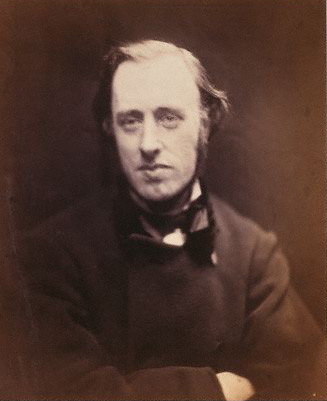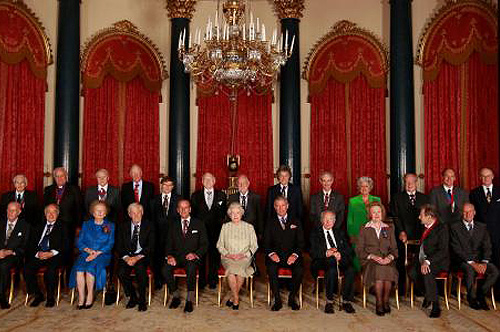W.E.H. Lecky – Brave Critic of the New Age
Five score and five years ago today, October 22, 1903, William Edward Hartpole Lecky passed on from this world. Lecky was a historian, a political philosopher, and a Member of Parliament at Westminster for Dublin University. The new age was rising, and against it stood W.E.H. Lecky. In the words of William Murchison, he chose to write – and fight.
Writes William Murchison further in the introduction to W.E.H. Lecky's Democracy and Liberty:
Democracy was the late Victorian age's great passion – a concept not just to profess but to translate into reality. The democracy professed was less radical than that of the French revolutionaries who, in Burke's day, had cried "Liberty, Fraternity, Equality!" – and then decapitated thousands of their free and equal brethren. Democracy to the Victorians, meant something relatively high-minded – government by the majority for the benefit of the majority. The principle was amiable enough, certainly. It was in the practical application that things began to go wrong, as Lecky and a few others easily discerned. The implications of democracy for good government, for liberty – for precisely the values that democracy was meant to assert – were deeply disturbing.William Murchison describes Democracy and Liberty further:
The argument of the book is the incompatibility of two concepts which, in the late 20th century, are regarded virtually as twins – democracy and liberty. The one might seem, at first glance, to reinforce and invigorate the other. But it was not so, as Lecky proceeded to establish in detail.Murchison continues:
What had worked best for Britain, so far as he was concerned, was the electoral system that prevailed from the Reform Bill of 1832 until the Reform Bill of 1867. In 1832, the middle class had been enfranchised. The change had, at the time, split the country asunder, but it had worked. This was because, in Lecky's view, it had admitted to power a class of men solid, trustworthy, educated, and hard-working. Their merits, not their abstract “rights,” qualified them for the franchise. It was different with the millions granted the vote in 1867 and 1884. Sheer numbers was what mainly seemed to commend them as voters.Murchison goes on:
What Lecky feared was that his country's government would pass out of the hands of gentlemen and “into the hands of professional politicians” – like those to be found in the United States.Further Murchison writes:
Lecky was concerned, accordingly, that gentlemen should continue to govern. He was concerned especially for the future of the House of Lords, which fast was coming to be regarded as a feudal relic, occupying a “secondary position in the Constitution.” “Man for man, he wrote, “it is quite possible that (the Lords) represents more ability and knowledge than the House of Commons, and its members are certainly able to discuss public affairs in a more single-minded and disinterested spirit.” The peers' “superiority of knowledge” was “very marked.” They were more than ornamental; they contributed, along with the Throne, to the kingdom's “greatness and cohesion.”Lecky was a Privy Councillor and was bestowed with the Order of Merit.
W.E.H. Lecky blamed the rebellion in the American colonies largely on the encroachments of Parliament on Royal Prerogative.
Of the American Electoral College Lecky wrote:
In this manner it was hoped that the President might be elected by the independent votes of a small body of worthy citizens who were not deeply plunged in party politics. But, as the spirit of party intensified and the great party organisations attained their maturity, this system wholly failed.Of President Andrew Jackson Lecky wrote:
The modern system of making all posts under the Government, however unconnected with politics, rewards for party services was organised, in 1829, by Andrew Jackson. This President may be said to have completed the work of making the American Republic a pure democracy, which Jefferson had begun. His statue stands in front of the White House at Washington as one of the great men of America, and he assuredly deserves to be remembered as the founder of the most stupendous system of political corruption in modern history.Of democracy and regulation Lecky wrote:
In our own day, no fact is more incontestable and conspicuous than the love of democracy for authoritative regulation.Of the House of Commons Lecky wrote:
Of all the forms of government that are possible among mankind, I do not know any which is likely to be worse than the government of a single omnipotent democratic Chamber. It is at least as susceptible as an individual despot to the temptations that grow out of the possession of an uncontrolled power, and it is likely to act with much less sense of responsibility and much less real deliberation. The necessity of making a great decision seldom fails to weigh heavily on a single despot, but when the responsibility is divided among a large assembly, it is greatly attenuated. Every considerable assembly also, as it has been truly said, has at times something of the character of a mob. Men acting in crowds and in public, and amid the passions of conflict and debate, are strangely different from what they are when considering a serious question in the calm seclusion of their cabinets.Of the worship of majorities Lecky wrote:
He will not, if he is a wise man, be reassured by the prevailing habit, so natural in democracies, of canonising, and almost idolising, mere majorities, even when they are mainly composed of the most ignorant men, voting under all the misleading influences of side-issues and violent class or party passions. The ‘voice of the people,’ as expressed at the polls, is to many politicians the sum of all wisdom, the supreme test of truth or falsehood. It is even more than this: it is invested with something very like the spiritual efficacy with theologians have ascribed to baptism. It is supposed to wash away all sin. However unscrupulous, however dishonest, may be the acts of a party or of a statesman, they are considered to be justified beyond reproach if they have been condoned or sanctioned at a general election. It has sometimes happened that a politician has been found guilty of a grave personal offence by an intelligent and impartial jury, after a minute investigation of evidence, conducted with the assistance of highly trained advocates, and under the direction of an experienced judge. He afterwards finds a constituency which will send him to Parliament, and the newspapers of his party declare that his character is now clear. He has been absolved by ‘the great voice of the people.’ Truly indeed did Carlyle say that the superstitions to be feared in the present day are much less religious than political; and all the forms of idolatry I know none more irrational and ignoble than this blind worship of mere numbers.Democracy and Liberty, a two-volume work, is indeed refreshing reading, now even more than a century after its publication. We honor the memory of William Edward Hartpole Lecky. May he continue to rest in peace.
Read the full article >>
 Vice-Regal Saint:
Vice-Regal Saint: 












































.gif)

.gif)














































































































